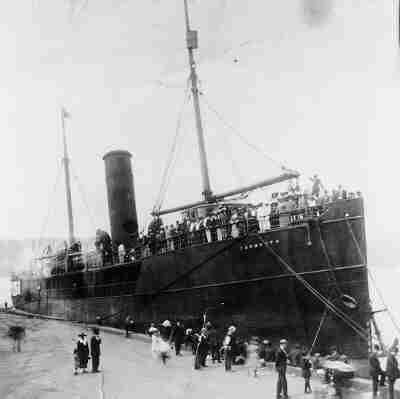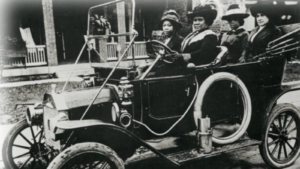Marcus Garvey was a prolific orator and thinker who inspired a generation of black leaders and thinkers. He was a major voice in the Black Nationalism and Pan-Africanism movements, to which end he founded the Universal Negro Improvement Association and African Communities League. In this blog post, we’ll take a look at Garvey’s life, his ideas, and his legacy.
Marcus Garvey was born in Jamaica in 1887. As a young man, he moved to England to study law. While there, he was exposed to Socialist ideas which would shape his own political thinking. In 1910, he returned to Jamaica and shortly thereafter founded the Universal Negro Improvement Association (U.N.I.A.), an organization dedicated to promoting black pride and economic self-sufficiency.
In 1919, Garvey and U.N.I.A. launched the Black Star Line, a shipping company that would establish trade and commerce between Africans in America, the Caribbean, South and Central America, and Africa.

Marcus Garvey and Black Entrepreneurship
Marcus Garvey’s impact on black entrepreneurship can be seen in two main ways:
his promotion of black pride and self-reliance, and his establishment of the Black Star Line.
Garvey’s promotion of black pride and self-reliance inspired black entrepreneurs to create businesses that catered to the black community. This created opportunities for black-owned businesses to thrive. In addition, Garvey’s philosophy of self-reliance encouraged black entrepreneurs to focus on developing their own businesses rather than working for others. This helped to create a class of successful black businessmen and women who were able to provide goods and services to their communities.
Garvey’s establishment of the Black Star Line also had a significant impact on entrepreneurship among black people. The company provided much needed transportation services between Africa and the Americas during a time when travel was difficult and dangerous for black people. The Black Star Line also helped to stimulate economic activity in African American communities by providing employment opportunities for those who worked on the ships or in the company’s offices. In addition, the Black Star Line fostered a spirit of cooperation among black people from different parts of the world who were united by their shared experience of working together to build the company.

Despite these setbacks, Garvey continued to preach his message of black empowerment and economic independence. He advanced a Pan-African philosophy which inspired a global mass movement, known as Garveyism. Garveyism would eventually inspire others, from the Nation of Islam to the Rastafari movement.
In 1922, Garvey was invited to speak at a rally in New York City’s Madison Square Garden. Over 25,000 people attended the event, making it one of the largest political gatherings in American history up to that time.
However, not everyone was a fan of Marcus Garvey or his ideas. J. Edgar Hoover, then head of the FBI, placed Garvey under surveillance due to his supposed “un-American” activities. In 1927, Garvey was arrested on trumped-up charges of mail fraud and sentenced to five years in prison. He was subsequently deported back to Jamaica after serving two years of his sentence.
After his release from prison, Marcus Garvey continued to work for black emancipation until his death in 1940. Though he did not achieve all of his goals during his lifetime, his ideas continue to inspire black leaders to this day.
Marcus Garvey was a true visionary whose ideas and actions inspired generations of black leaders and thinkers. His legacy continues to this day to empower those who seek social change and racial equality. Though he did not achieve all oof his goals in his lifetime, his memory remains a powerful force for good in the world.
Marcus Garvey’s legacy continues to inspire entrepreneurship among black entrepreneurs today. His promotion of black pride and self-reliance encouraged black entrepreneurs to focus on developing their own businesses. His establishment of the Black Star Line also had a significant impact on entrepreneurship among black people by providing transportation services between Africa and the Americas and stimulating economic activity in African American communities.




Responses